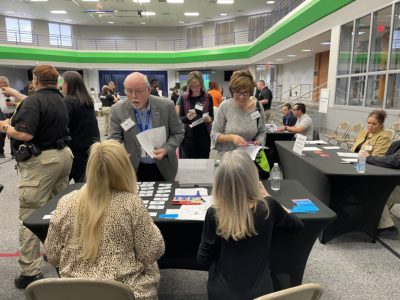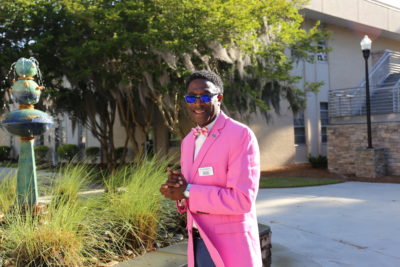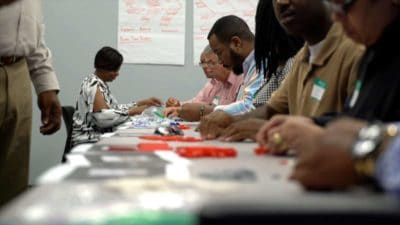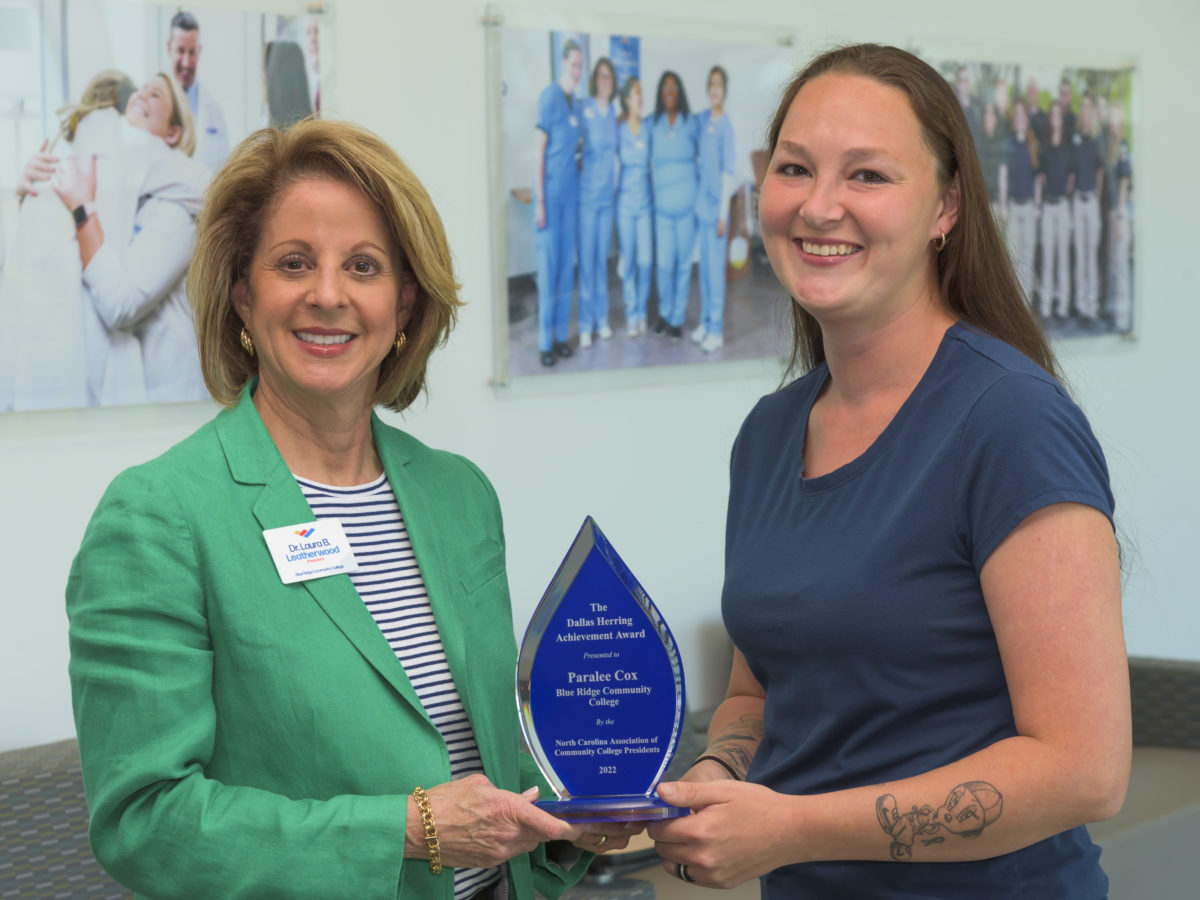
Share this story
|
|
In 2014, Paralee Cox received a 60-month federal prison sentence for drug-related charges.
Eight years later, she is just days away from walking the stage as a Blue Ridge Community College graduate. The achievement is especially meaningful to Cox because of her struggles — including her background long before prison.
“My childhood was very dysfunctional,” she said. “It was drugs and abuse, and that was just everyday normal.”
Before her grandfather was able to adopt her, Cox was in and out of foster homes. By then, she said her childhood experiences made her feel like she had no one in her life. Those experiences also made it difficult for her to accept love from others. Eventually, she ran away and started abusing drugs herself. In 2012, she was charged for selling drugs and guns.
When she first got to prison, not much changed for her until she learned she could lose her son. Around that time, a prison official warned her that she’d likely remain imprisoned if she didn’t change her ways.
“So I guess I had a life-changing moment, and a real eye-opener seeing that, even if I wasn’t on the streets and behind bars, I was still doing the same thing,” she said.
Cox then decided to join the facility’s firefighter certification program — a decision she says kicked off her educational journey.
“Just being able to go out into the community to help the local firefighters really gave me a confidence booster,” she said. “And really opened my eyes in seeing that I love to be able to help others.”
Cox also participated in the prison’s youth awareness program, where she shared her story with students at local schools. Her goal? To show them “there were other ways of getting the help they needed.”
Getting to Blue Ridge Community College
Before her release, Cox was busy making plans about what she wanted life to look like after prison. Cox found Blue Ridge Community College while looking for the local options in Hendersonville. Her husband planned to move there during her prison sentence.
Cox wrote a letter to the college while in prison asking for help after her release.
“I told them a little about myself and told them that I wanted to come out of prison and be able to have a career … and prove to myself that I could do something,” she said.
Cox knew that without making changes, she could end up repeating the pattern.
Nationally, 82% of inmates are arrested again within 10 years of being released, and 61% end up back in jail in the same time period, according to 2021 Bureau of Justice data. Advocates believe such recidivism statistics can be lowered by teaching inmates and the formerly incarcerated both personal and professional skills.
But the transition from prison to the general population isn’t easy. Each year, more than 22,000 people like Cox are released from the state’s prison system, according to the North Carolina Department of Public Safety. About 98% of current inmates will be released in the future.
This re-entry process is full of challenges, including securing housing, transportation, forms of identification, clothing, food, education, and employment all within a short period of time.
After her release, Cox met with Dr. Laura Leatherwood, president of Blue Ridge, and Stacy Hill, the college’s human resource development (HRD) employability lab instructor. They discussed Cox’s next steps and career options.
Cox knew she loved helping others and wanted a career in a hospital environment.
“I really liked the idea of surgical technology and being in the OR,” Cox said.
Leatherwood and Hill would eventually connect Cox to the right people who could help her navigate program requirements given her previous charges.
‘The multiplier effect’
Leatherwood said community colleges are in the business of saving lives through education.
“In Paralee’s case, Blue Ridge did save her life,” Leatherwood said. And “there are thousands of stories on our campuses that we could tell just like Paralee’s.”
For the past year, North Carolina community colleges have been making significant adjustments to the way they serve adult learners — learners like Cox who may have multiple hurdles to push past.
Administrators previously told EdNC their college’s operating models did not account for the unique needs of adult learners. Those needs include everything from help with transportation, child care, food, and clothing — needs accentuated for the formerly incarcerated.
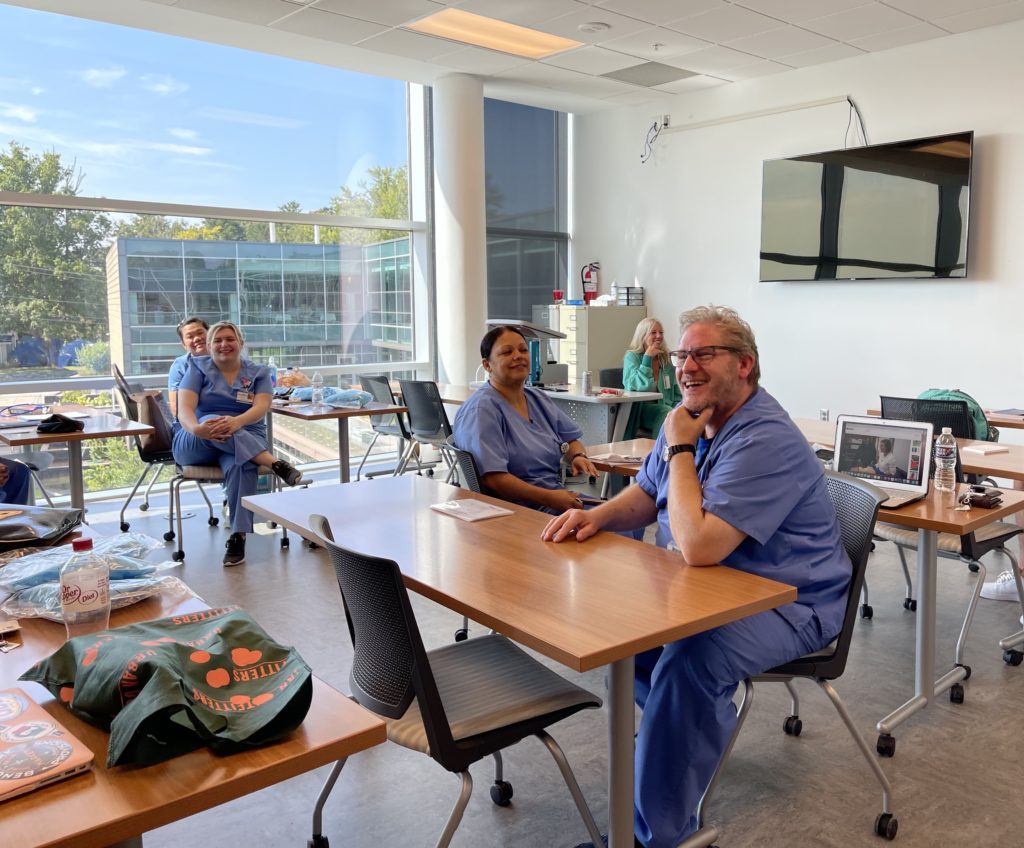
Last year, the John M Belk Endowment, myFutureNC, and the Belk Center for Community College Leadership and Research launched N.C. Reconnect, an initiative to help reconnect students older than 25 to the state’s community colleges. Blue Ridge was one of the first five pilot schools.
In addition to teaching students like Cox, the North Carolina Community College System (NCCCS) also benefits the statewide community. An economic impact study presented to the State Board of Community Colleges last month found that the NCCCS contributes about $19.3 billion to the state’s economy each year.
More than 500,000 students attend one of the state’s 58 community colleges, and the report shows that on average, NCCCS students have a rate of return on their college investment of 22.3%.
“If you take that local impact and multiply that by the number of students that we educate and train, and then you multiply that again by the family members,” Leatherwood said. “If you use the same analogy of the multiplier effect that we use in economic development, our work has the ability to collectively solve the workforce challenge and provide the greatest return on investment that the state of N.C. could make.”
Paralee’s adult learner story
During her time at Blue Ridge, Cox received the Hans & Liselotte R. Wehrheim Scholarship through the Blue Ridge Community College Educational Foundation. And last month, Cox was named the system’s Dallas Herring Achievement Award out of 58 nominees across the state.
NCCCS established the award in 2010 to honor the late community college advocate Dallas Herring and celebrate a current or former community college student.
“When I found out, I was kind of in shock. I think I’m kind of still in shock,” Cox said. “But it’s very exciting at the same time to know that I won an award. I just want to be able to show others who have similar backgrounds as me that there are people here who can help you. You just have to continue to knock on the doors and eventually one will open.”
President Leatherwood surprised Cox with the news.
“I experienced an overwhelming sense of pride for Paralee and what she has accomplished and the enormous barriers she has overcome,” Leatherwood said. “Her story was like no other I had ever heard. It is this kind of life-changing experience that reminds me why I do this work.”
On May 14, Cox will graduate from Blue Ridge Community College with a credential in surgical technology. As for her career, Cox is already employed by Pardee UNC Health Care as a surgical technician.
Cox said she plans to continue using what she learned at Blue Ridge at Pardee Hospital and beyond. Most importantly, she hopes to position herself to help others. The possibility that winning the Dallas Herring award symbolizes to students like her is a good place to start.
“My thing would be just to show others that it’s possible to get help and it’s possible to overcome your battles, no matter what your background may look like,” she said. “It is very hard and there are a lot of no’s, but if you are willing to put in the work — there will be that one person that will see that you have the desire to overcome any obstacle and they will always help you. You’ve just got to keep pushing.”




